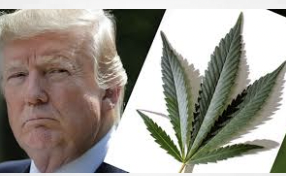In the cannabis industry, business owners must stay informed about the products they deal with and their financial implications. Two cannabinoids that have been the subject of much discussion are Delta-8 and Delta-9 tetrahydrocannabinol (THC). While they may share similarities, their differences extend beyond their chemical structure to their legal status and tax implications. In this blog, we will demystify these differences and guide you through the complex landscape of cannabis taxation.
Chemical and Legal Distinctions
Delta-9 THCis the most well-known cannabinoid found in cannabis plants and is responsible for the psychoactive effects traditionally associated with cannabis use.Delta-8 THC, on the other hand, is a lesser-known compound that occurs in much smaller quantities. It is chemically different from Delta-9 by only a few atomic bonds, but still has a psychoactive effect for the consumer. Consumers may purchase Delta-8 gummies at a gas station and may not be fully aware that they will have psychoactive effects.
The legal status of these compounds significantly differs due to the 2018 Farm Bill in the United States. The bill legalized hemp-derived products containing less than 0.3% Delta-9 THC on a dry weight basis, inadvertently creating a loophole that allowed the sale of Delta-8 products, assuming they meet the same criteria. However, this has led to a patchwork of state laws, with some states specifically banning Delta-8.
Tax Implications for Businesses
The different legal statuses of Delta-8 and Delta-9 directly affect taxation. Here’s how:
Federal Taxation:Under IRC Section 280E, businesses dealing in Schedule I or II controlled substances are prohibited from deducting ordinary business expenses, except for the cost of goods sold (COGS). Since marijuana (containing Delta-9 THC) is still a Schedule I drug at the federal level, cannabis businesses face unique tax challenges. However, since Delta-8 can be derived from hemp and may fall outside this classification if compliant with the Farm Bill, cannabis businesses could avoid the limitations of Section 280E for products solely containing Delta-8, assuming they navigate state laws correctly. However, this is still a very gray area and we have not seen what position the IRS may take or the position of the courts as of the date of this article.
State Taxation:State tax implications vary widely depending on the legal status of Delta-8 and Delta-9 THC. States that have legalized recreational marijuana may impose excise taxes on Delta-9-containing products in addition to sales tax. For Delta-8, the tax treatment can be more complicated. In states where Delta-8 is legal, it might be taxed similarly to other hemp products, which can be more favorable than the taxation of marijuana products. However, businesses must be vigilant about changing laws and remain compliant with state and federal regulations.
Navigating Compliance and Tax Strategy
For businesses operating in this space, understanding the nuances of Delta-8 and Delta-9 is just the beginning. Navigating the complex tax landscape requires a strategic approach:
- Stay Informed:Laws and regulations surrounding cannabis and hemp products are constantly evolving. Businesses must stay informed about both federal and state-level changes that could affect their operations.
- Record-Keeping:Meticulous record-keeping is essential. This includes detailed accounts of product sourcing, manufacturing processes, and sales. Such records are crucial to prove compliance with legal thresholds for THC content.
- Tax Planning:Engage with a knowledgeable accounting firm, such as BGM, that specializes in cannabis taxation. Strategic tax planning can help identify opportunities to minimize tax liabilities while ensuring compliance with current laws.
- Banking:Banks have been hesitant about working with the hemp industry. This may add confusion and make certain banks more hesitant about serving the hemp industry.
- Legal Compliance:Regularly consult with legal experts who specialize in this space to ensure that your business operations and product offerings comply with state and federal laws. This is especially important given the legal ambiguities surrounding Delta-8.
Navigating the complexities of Delta-8 and Delta-9 THC, along with their tax implications, requires expertise and foresight. At BGM, we provide comprehensive business guidance and management solutions tailored to your unique needs. Whether you’re looking to understand the financial nuances of your industry or to ensure your business remains compliant amidst changing regulations, our team is here to support you. Reach out to us today to explore how our services can empower your business decisions and foster growth in this dynamic landscape.
Source:
Difference Between Delta 8 and Delta 9 THC: Tax and Legal Compliance


















